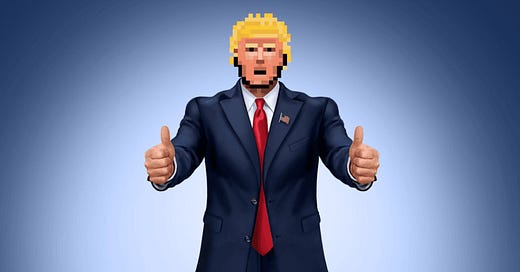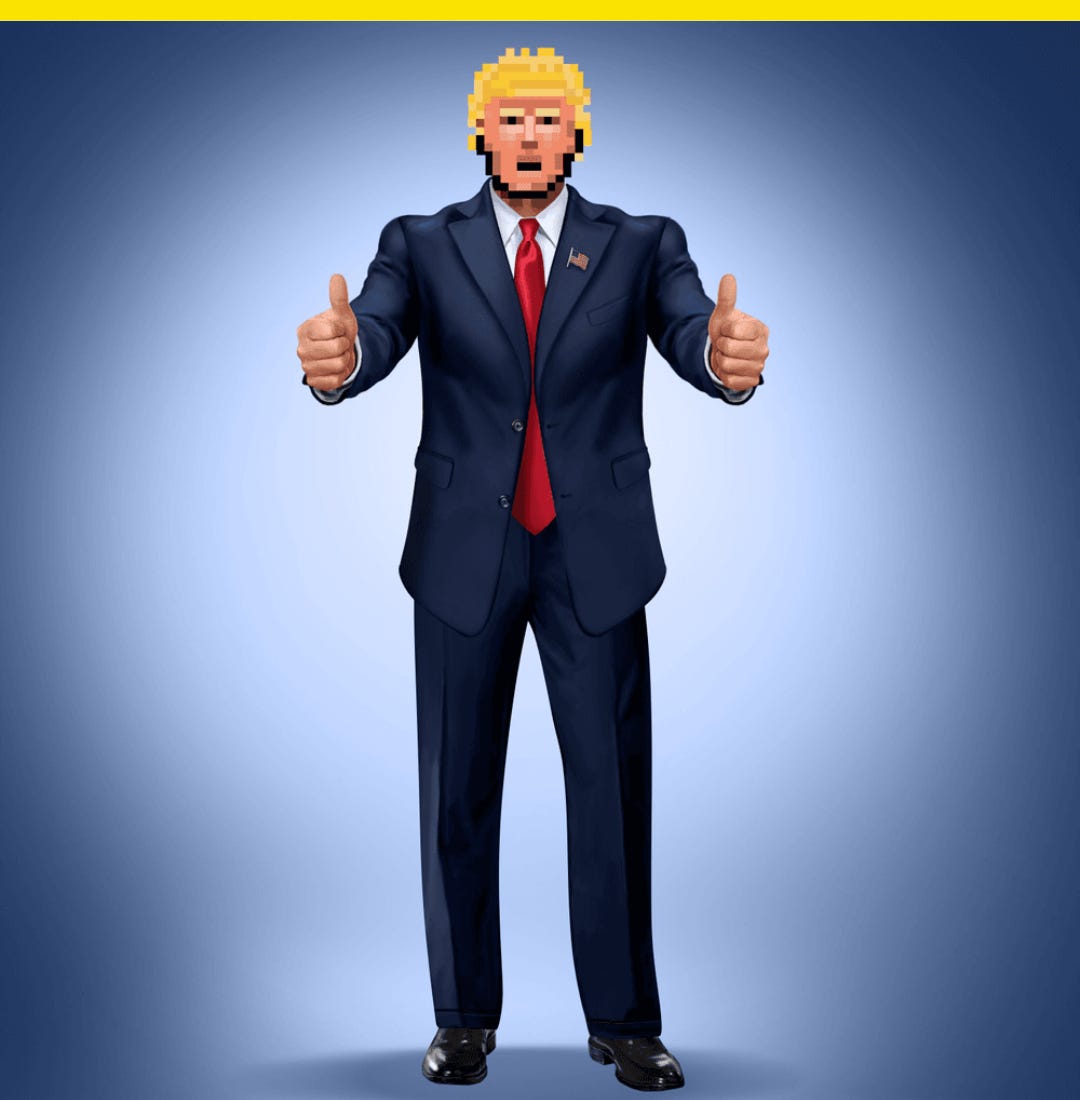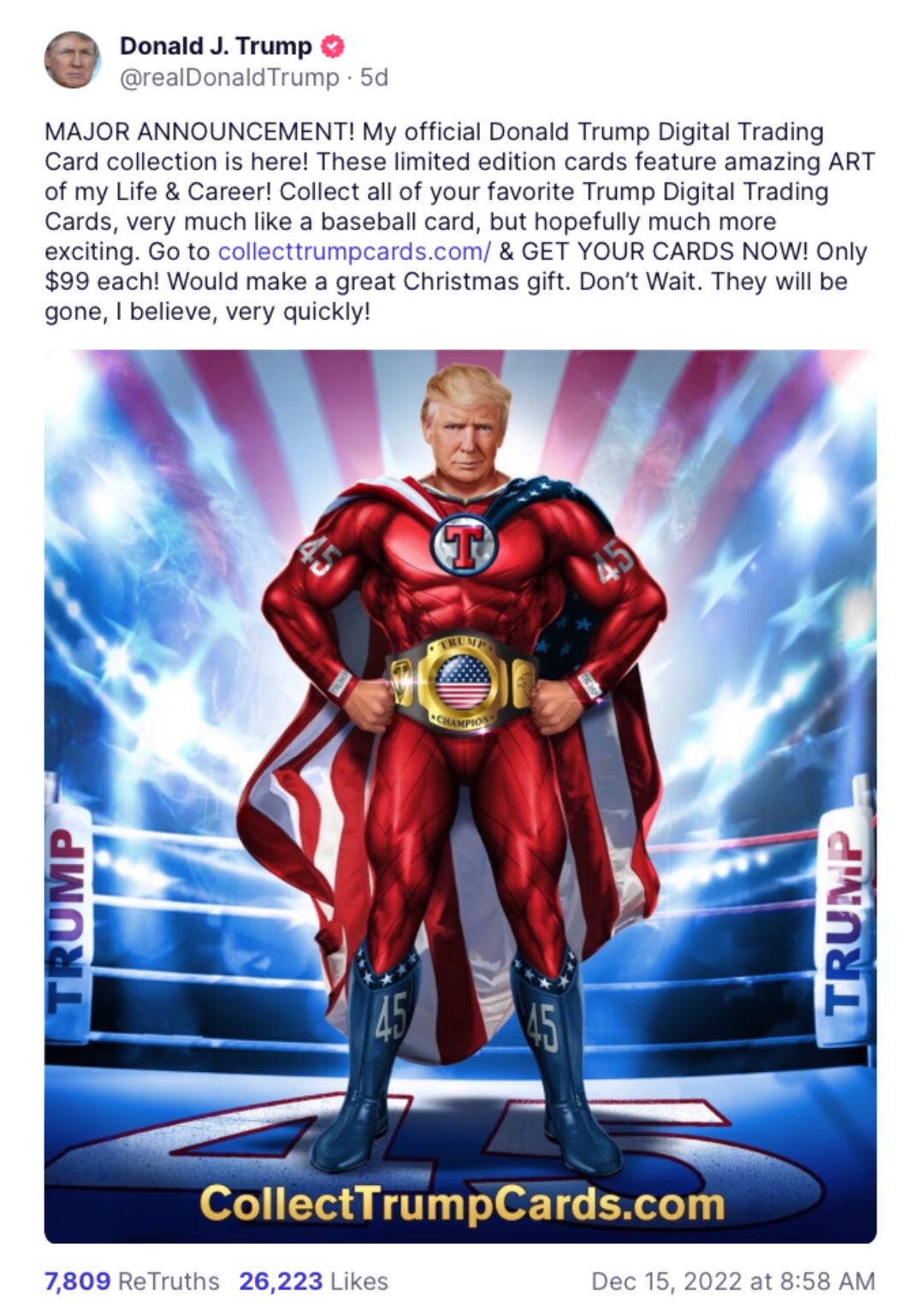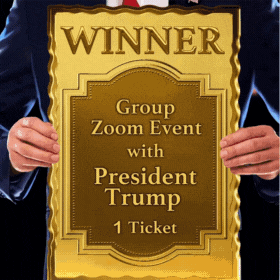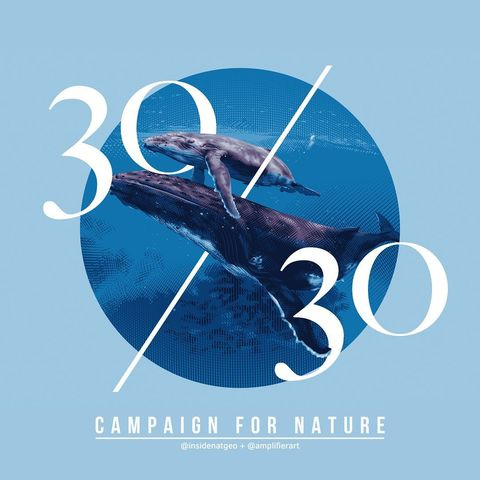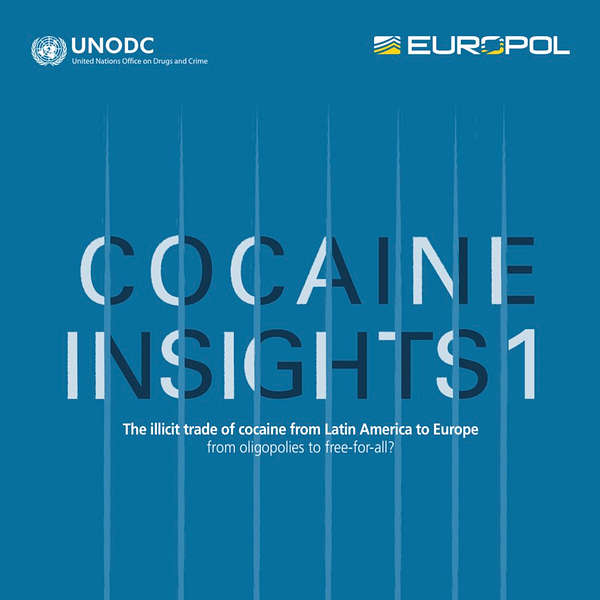What Trump actually got right about his NFTs
“i can’t believe i’m going to jail for an nft salesman"
Former President Donald Trump is one month into his 2024 campaign, and he has yet to articulate a rationale for running. But he did release some NFTs.
Trump teased the digital trading cards last week as a major announcement, and the reveal disappointed even his most loyal supporters. “i can’t believe i’m going to jail for an nft salesman,” tweeted the formerly deplatformed far-right internet personality known as “Baked Alaska,” who could be sentenced next year over his involvement in the Jan. 6 riot.
The Jan. 6 select committee referred Trump on criminal charges Monday in connection to the Capitol attack, a much more pressing issue for the candidate than bad press for his NFTs. Still, their launch speaks to Trump’s strengths and weaknesses in retaking the nomination.
The cards feature art of Trump as a superhero, cowboy, astronaut, and more from Clark Mitchell, a digital artist whose clients have included Matel and Hasbro. Some resemble a cheap A.I. art generator trained on the work of artist Jason Heuser, whose popular illustrations have shown presidents like Ronald Reagan riding a velociraptor and Trump on a tank, only less detailed and engaging. Others look like pure Trump fan art.
Trump’s played up memes showing himself as an action figure before, but after three straight election losses for Republicans, the sight of Super Trump with laser eyes seems now more desperate than fearsome. The God Emperor has no clothes and he’s trying to force a meme.
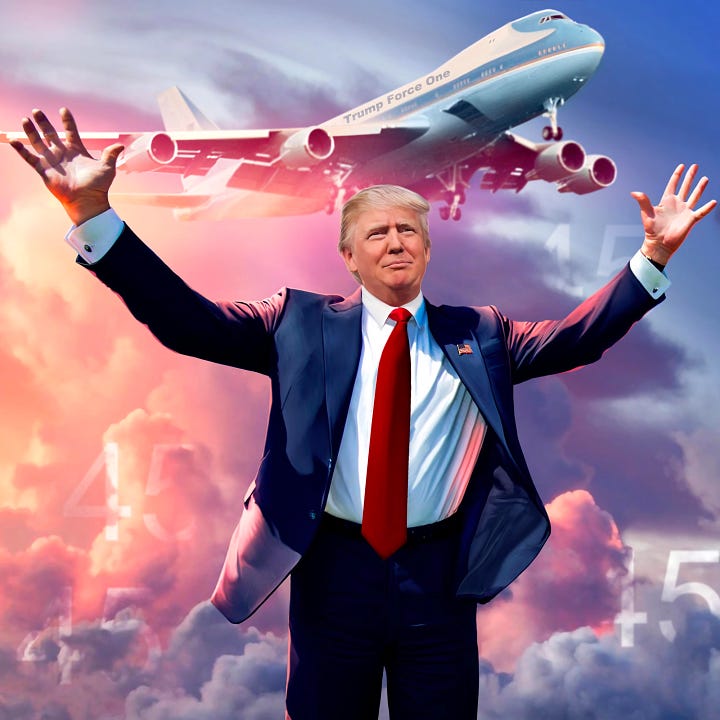
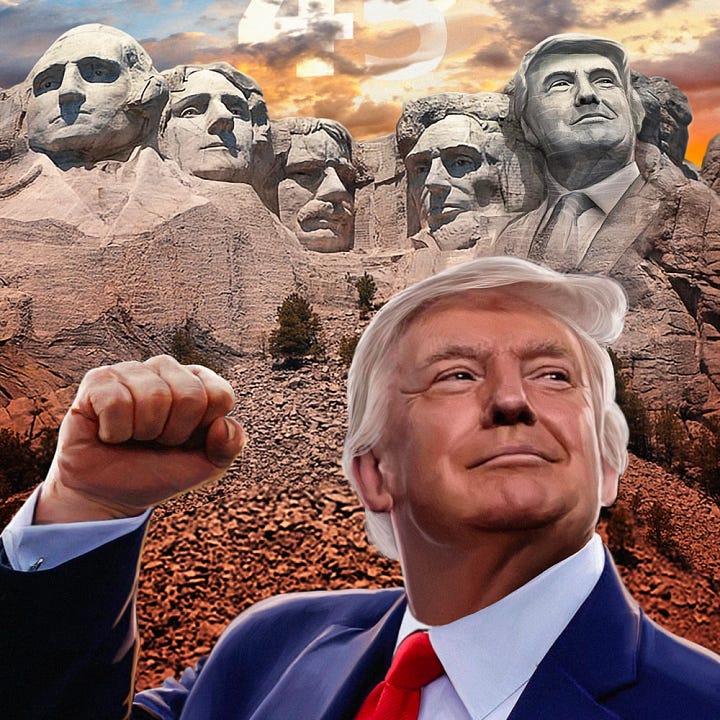
Trump’s timing to launch the NFTs — a year after former first lady Melania Trump released her first NFTs — was also less than ideal. NFT trading volume has dropped 97% from January to September, according to data from Dune Analytics reviewed by Businessweek, and celebrities associated with the NFT collection Bored Ape Yacht Club were named in a class-action lawsuit filed earlier this month. While I’m not convinced NFTs don’t still have a future, the bubble has popped and many see the format as smoke and mirrors.
Still, Trump’s trading card collection succeeded where other Trump family NFT ventures have not. There were 45,000 NFT trading cards minted for the collection, and they’ve all sold out, according to their site, with more than 15,000 owners. A similar but less successful idea for differentiated cartoon Trump portraits was explored in March with CryptoTRUMP NFTs. The first Trump-themed take on the Bored Ape Yacht Club didn’t catch on, and just 385 of the first 1,000 NFTs sold on DeepRedSky, an NFT platform connected to the conservative social media site Parler.
What Trump’s NFT trading cards had that the earlier CryptoTRUMP didn’t was the chance to win additional prizes, like a Zoom call, round of golf, or dinner with Trump. It gamifies the experience, and elevates the purchase to more than just an image. Trump didn’t seem personally impressed, however. “I don’t know if that’s an amazing prize, but that’s what we have,” he said in a promotional video for the NFTs. Retailing for $99 each, the NFTs brought in more than $4 million, plus a 10% royalty on all future sales, and there have been future sales. Some are now trading for as much as $310, and a one-of-one signed design of Trump in a tuxedo went for nearly $44,000.
The money won’t be funding Trump’s campaign, signaling his priorities aren’t focused exclusively on politics. While that might disappoint supporters who want to see him back in the White House, Trump’s long built his career on licensing out his name to buildings and products. In a way, to see him doing it again feels almost quaint.
Though Trump’s chances to retake the nomination seem more tenuous now than ever, the success of his NFTs show he’s still a salesman who can move product with a core audience. It’s a skill that could still prove useful should he face a crowded primary.
Have you seen this?
National Geographic just launched an art campaign to protect 30% of the planet by 2030. Nat Geo partnered with Amplifier to commission 16 artists to create work based on photographs from the magazine’s photographers.
Biden team planning a dramatically expanded digital strategy for 2024. “President Biden’s political advisers are preparing a strategy for his likely 2024 reelection campaign that would dramatically expand efforts to organize content-sharing between supporters and their friends on digital platforms, including TikTok and WhatsApp, where political advertising is not allowed, according to people involved in the effort.” [The Washington Post]
This week in UN briefing covers that go hard. “The cocaine market presents a clear threat at global level,” the authors write. [Europol]
Why the future of fonts could be personalized. Machine learning could help you find your fastest font. [𝘠𝘌𝘓𝘓𝘖]
Like what you see?
Subscribe for more:

